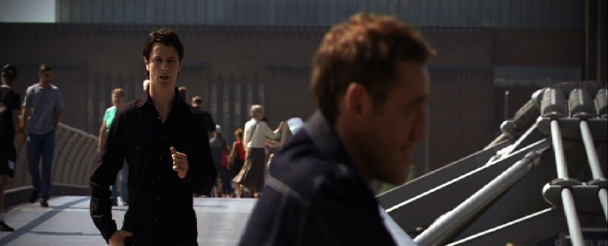
How not to make a gay movie

If we hadn’t self-funded our film (credit cards and the sale of my sister’s youngest child) we would probably never have made Mr. Right. It wasn’t that we were turned down for outside funding, but simply that we’d been along the “Trying to get finance route” on another project, and we’d been frustratingly close a number of times, before the rug was pulled. We didn’t want to waste any more time.
I thought I’d spotted a gap in the market that would make our film stand out, and, even if it didn’t exactly become Brokeback Mountain, would give it the profile to at least make its money back in the gay film market. The unique selling point of the film was that it was to be a story in which, although many of the main characters are gay, the story-lines aren’t gay related. Sounds an obvious approach, but that idea had not been explored very often before. The reaction from those in the gay media that we spoke to was pretty universally negative, the thinking was that it was too much of a risk.
A typical encounter: whilst the script was still in development, we were introduced to an American distributor who deals in gay product. He politely listened to the synopsis and then gave his argument as too why we shouldn’t make it. There isn’t really space here to give his reasoned critique or his nuanced assessment but, in short, the problem was that there wasn’t any full-frontal nudity in it – although he expressed it in fewer letters. Apparently, a gay audience wouldn’t be interested unless it had cock. Cock and muscle men in tight tops. Also, gays are only interested in stories with recognised “gay” themes. Try anything else, he warned, and you’ll be throwing your money away. He then contrasted our disastrous proposal with a project that he was developing – a project that followed the “gay formula”: A guy, bought up by a right-wing family, is part of a gang that beats up “fags”; only the guy realises that he has feelings for one of the victims, and he has to face…. you can probably guess the rest. Apparently there’s going to be a lot of cock in it. Cock and self-discovery.
We went ahead regardless and made the film, and were pleased with the result. We managed to acquire some very good patrons, including advertising guru Trevor Beattie (FCUK campaign and Wonderbra, amongst others), who came on board as executive producer, and created a marketing campaign for the movie, aimed at a wider ‘straight’ audience, who, he believed would enjoy it.
The next mistake we made was to try and get it premiered in Britain. We applied to have the film included in the London Lesbian and Gay Film Festival, and to be honest, it never really occurred to us that it’d be turned down – surely, even if they hated it – as there are only one or two British gay films made a year – one would have thought they’d give it a slot (even at 9am on a Monday morning) just to encourage home-grown film. But a rejection letter landed on the mat.
So it was with some trepidation that we headed to America. But we needn’t have worried; the reaction could not have been more different to that of this side of the pond. The film was accepted, and heavily promoted by, all the major gay film festivals, and was bought by VH1. It also got great reviews from publications, such as Variety and the nationally syndicated Miami Herald. The icing on the cake was when, probably the most high-profile event, Newfest, the New York festival, chose Mr. Right to be their opening film. The contrast to the London festival could not have been more stark.
So would we do it any differently if we could go back in time? Probably not; sometimes you just have to stick to your guns.
David Morris’ new film Mr Right is in cinemas from November 27 and on DVD January 25 2010.







COMMENTS